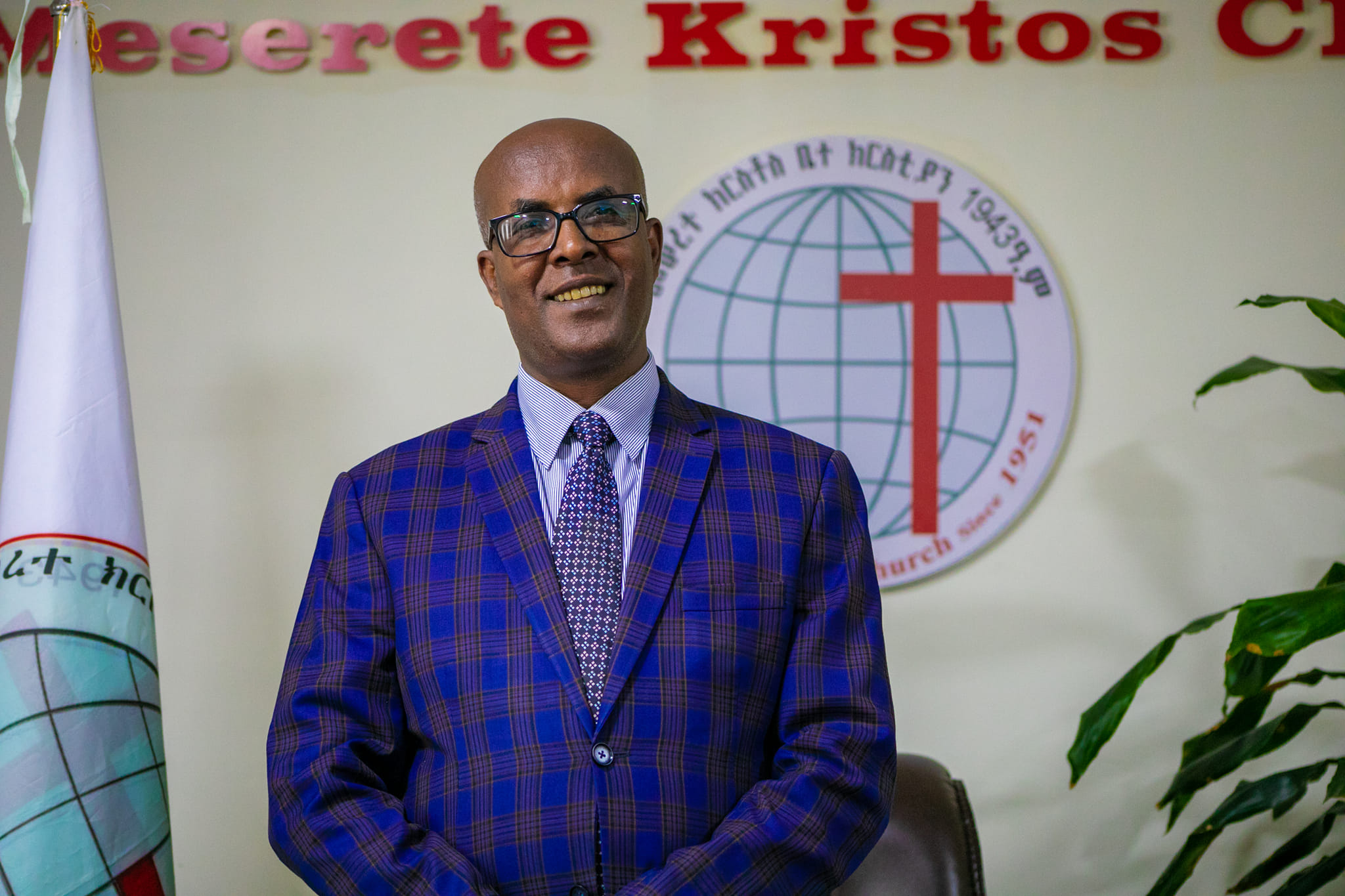First and foremost, I deeply acknowledge that Mennonite Central Committee (MCC) represents a global heritage for all Anabaptist and Mennonite communities worldwide. Despite our diverse contexts, MCC continues to serve as the humanitarian arm of the Anabaptist tradition.
As someone deeply committed to both truth and organizational stability, I found myself wrestling with multiple perspectives. On the one hand, my position has challenged me to view these complexities through the lens of leadership, understanding the difficult decisions leaders must make. On the other hand, I was also struck by the culture of silence—instances where voices that should have spoken out remained unheard. This tension between institutional responsibility and the moral imperative to speak truthfully has been at the forefront of my reflections.
Considering this, institutional inertia occurs when organizations hold on to stability in the face of moral, ethical or operational failure. This holding on is particularly frightening in peace-fostering, justice-seeking, reconciliation-focused religious institutions like MCC.
Momentum, conversely, indicates an organization’s ability to welcome change, realign to its own integrity and move forward in honesty.
The current controversy surrounding MCC’s handling of allegations of abuse and problems of power imbalance brings the tension between momentum and inertia to the surface. There are people in MCC’s leadership who have publicly addressed past mistakes, but whose reaction—extended as minimal disclosure, and institution prestige protection—is evidence of inertia rather than of adaptation. This article reviews the historical and theological foundations of institutional renewal, using Scripture and Anabaptist history to reflect MCC’s response and plan a new path.
Biblical Insights into Organizational Inertia and Momentum
In the Bible, God calls institutions to rebirth and integrity, criticizing religious and political authorities who are irresponsible. The prophet Amos, for example, condemns Israel for their religious festivities while they fail to dispense justice. “I hate, I despise your religious festivals; your assemblies are a stench to me…. But let justice roll on like a river, righteousness like a never-failing stream!”(Amos 5:21, 24 NIV)
This assertion summarizes how mutually exclusive religious formalities can be from enacting justice. Similarly, MCC’s attempts at being a global leader are diminished by their reluctance to fully acknowledge harm done on their watch. Amos’s call for responsibility stands as a rebuke to their complacency. A peacebuilding agency cannot in good conscience label itself as a global leader in this regard if it is not subject to material responsibility for local injustices.
Isaiah also rebukes rulers who prefer to preserve themselves at the expense of justice, and states: “Woe to those who make unjust laws, to those who issue oppressive decrees, to deprive the poor of their rights and withhold justice from the oppressed of my people, making widows their prey and robbing the fatherless.” (Isaiah 10:1-2 NIV)
MCC’s recorded handling of whistleblowers and survivors testifies to an institutional culture more invested in control of procedure than in justice. The biblical imperative is plain: true repentance involves dismantling systems of oppression and seeking justice, not institutional self-interest (Brueggemann, 2014).
Jesus also condemned religious complacency, i.e., hypocrisy of leaders who preserved religious power at the cost of justice. He condemns them, stating: “Woe to you, teachers of the law and Pharisees, you hypocrites! You give a tenth of your spice—mint, dill and cumin. But you have neglected the more important matters of law—justice, mercy and faithfulness. You should have practiced the latter, without neglecting the former.” (Matthew 23:23 NIV)
Reluctance of MCC’s leadership to be fully accountable to the world outside of itself exemplifies the same misplaced prioritizing. A response honoring Christ would place virtues of justice, openness and respect for survivors before protecting one’s own institution. Jesus’ walking out of the temple (Mark 11:15-17) also points to addressing institutional abuse. In the same way that Jesus threw institutionalized religion that was victimizing the poor into turmoil, institutions now must be prepared to overthrow established systems of power that are hurting people (Wink, 1992).
Anabaptist Perspectives on Organizational Change and Integrity
The Anabaptist movement was built on faithfulness to integrity of the Gospel, rather than to Catholic and Protestant institutionalism. The Schleitheim Confession of 1527 required Christian leadership to be humble and transparent as Christ was (Klaassen, 2001). Anabaptists have traditionally been resistant to domination by hierarchical systems, yet MCC’s leadership appears to be using bureaucratic systems to protect leadership from criticism.
The John Howard Yoder case serves as a warning against institutional self-satisfaction. One of the leading Anabaptist theologians, Yoder practiced serial sexual abuse, which was covered up by his Mennonite institutions for decades. Decades of survivors’ mobilization and outside pressure were required before these same institutions themselves admitted to their failure to hold him adequately accountable (Miller, 2014). MCC’s leadership response to successive allegations of abuse risks reproducing this scenario.
Without external scrutiny and institutional transparency and transformation, complacency will defeat justice. In her apology to victims of Yoder’s sexual exploitation, and speaking on behalf of AMBS as an institution, Sara Wenger Shenk (2015) states that, “There is no excuse when a theological school that is dedicated to teach what is good and true and beautiful about the Gospel fails in a most egregious way to comfort those who mourn, to bring good news to the oppressed, to bind up the broken-hearted and proclaim liberty to the captives. Whether through misnaming, or negligence, or avoidance, or fear of scandal, we failed the sacred trust of the church. We failed what we know to be most true about the Gospel. We failed you….”
MCC is presented with a decision today: follow the route of institutional drift or embark on the radical accountability its Anabaptist heritage requires. MCC’s leadership will need to heed these voices if it is to regain integrity.
Momentum will demand:
1. An independent, public investigation. MCC will need to be willing to be held accountable by outsiders in full transparency.
2. Leadership accountability. Leaders who led the damage or facilitated the cover-up should be held accountable.
3. Survivor-led restoration, with policy reform with restorative justice must take place.
4. Institutional reforms. MCC needs to eliminate structures of power which are abuse-enabling and create defenses against abuses to come.
MCC’s Crisis: Inertia or Momentum?
The current policy direction of MCC is full of all the signs of organizational inertia:
- Self-protection at all costs. Damage control is more on the agenda than total openness.
- Managed apologies. As MAST (2024) records, MCC’s language carefully avoids culpability for taking wholehearted responsibility.
- Denying the empowerment of survivors. A response shaped by justice would put survivors’ interests ahead of institutional image.
If MCC were to seize initiative, it would:
- Make a simple, obvious and genuine apology—naming failures, taking institutional blame and vowing root-and-branch change.
- Invite transparent outside inquiries and provide an open public view of results.
- Restore leadership structures—with accountability for everyone.
- Prioritize transparency over institutional reputation—avoiding evasive language or behind-closed-doors settlements.
Conclusion: A Call to Institutional Repentance
MCC’s leadership stands at a crossroads. Will it persist in inertia, half-steps and managed apologies? Or will it embrace the radical honesty that Anabaptist heritage and biblical justice call us to? As Jesus commands: “For whoever wants to save their life will lose it, but whoever loses their life for me will find it.” (Matthew 16:25, NIV) For MCC, the path forward is to leave behind institutional self-interest in favour of genuine justice. Anything short of this risks continuing harm to their integrity and functioning as a peacebuilding organization.
References
Brueggemann, W. (2014). Prophetic imagination. Fortress Press.
Klaassen, W. (2001). Anabaptism: Neither Catholic nor Protestant. Pandora Press.
MCC Abuse Survivors Together Steering Committee (MAST) (2024). “MAST responds to MCC statement that denies ‘claims of systemic abuse.’” Retrieved from https://www.mccabusesurvivors.org/mastnews/response-mcc-feb5-2025.
Miller, C. (2014). The enduring legacy of John Howard Yoder: Theology and misconduct. Mennonite Quarterly Review, 88(3), 401-423.
Wenger Shenk, S. (2015). Response to AMBS accountability failures. Anabaptist Witness Journal, 2(1), 56-68.
Wink, W. (1992). Engaging the powers: Discernment and resistance in a world of domination. Fortress Press.








Leave a Reply
You must be logged in to post a comment.